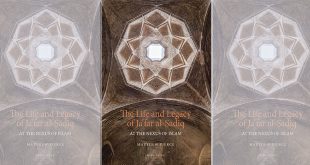The Prophet Muhammad was born in the city of Mecca, in Arabia, on a Friday, the 17th day of the lunar month of Rabi-I, in the year 570 CE into a noble family whose fathers and ancestors were amongst the chiefs of the Quraysh tribe, and the Bani-Hashim clan. His Prophetic mission began on the 27th day of the month of Rajab, in the year 610 CE, when he received the first divine revelation.
Then the Qur’an was revealed to the Prophet progressively according to the circumstances of the time over a period of 23 years. The Prophet Muhammad was killed by poisoning on the 28th day of the month of Safar in the 11th year of the Hijrah, 630 CE.
What Non-Muslims Say about Prophet Muhammad (P.B.U.H)
Alphonse de Lamartine (1790-1869) French poet and statesman.
“Philosopher, orator, apostle, legislator, warrior, conqueror of ideas, restorer of rational dogmas, of a cult without images; the founder of twenty terrestrial empires and of one spiritual empire, that is Muhammad. As regards all standards by which human greatness may be measured, we may well ask, is there any man greater than he?”[Translated from Histoire De La Turquie, Paris, 1854, vol. II, pp. 276-277]
Reverend Bosworth Smith (1794-1884) Late Fellow of Trinity College, Oxford.
“… he was Caesar and Pope in one; but he was Pope without the Pope’s pretensions, and Caesar without the legions of Caesar. Without a standing army, without a bodyguard, without a palace, without a fixed revenue, if ever any man had the right to say that he ruled by a right Divine, it was Mohammed; for he had all the power without its instruments and without its supports.” Mohammed and Mohammedanism, London, 1874, p. 235]
Mohandas Karamchand Gandhi (1869-1948) Indian thinker, statesman, and nationalist leader
“….I became more than ever convinced that it was not the sword that won a place for Islam in those days in the scheme of life. It was the rigid simplicity, the utter self-effacement of the prophet, the scrupulous regard for his pledges, his intense devotion to his friends and followers, his intrepidity, his fearlessness, his absolute trust in God and in his own mission. These, and not the sword carried everything before them and surmounted every trouble.” [Young India (periodical), 1928, Volume X]
Edward Gibbon (1737-1794) Considered the greatest British historian of his time
- “The greatest success of Mohammad’s life was effected by sheer moral force without the stroke of a sword.”
[History Of The Saracen Empire, London, 1870]
John William Draper (1811-1882) American scientist, philosopher, and historian
“Four years after the death of Justinian, A.D. 569, was born at Mecca, in Arabia the man who, of all men exercised the greatest influence upon the human race . . . Mohammed.” [A History of the Intellectual Development of Europe, London, 1875, vol.1, pp. 329-330]
David George Hogarth (1862-1927) English archaeologist, author, and keeper of the Ashmolean Museum, Oxford
“Serious or trivial, his daily behaviour has instituted a canon which millions observe this day with conscious mimicry. No one regarded by any section of the human race as Perfect Man has been imitated so minutely. The conduct of the Founder of Christianity has not so governed the ordinary life of His followers. Moreover, no Founder of a religion has been left on so solitary an eminence as the Muslim Apostle.” [Arabia, Oxford, 1922, p. 52]
Washington Irving (1783-1859) Well-known as the “first American man of letters”
“He was sober and abstemious in his diet, and a rigorous observer of fasts. He indulged in no magnificence of apparel, the ostentation of a petty mind; neither was his simplicity in dress affected, but the result of a real disregard to distinction from so trivial a source … In his private dealings he was just. He treated friends and strangers, the rich and poor, the powerful and the weak, with equity, and was beloved by the common people for the affability with which he received them, and listened to their complaints … His military triumphs awakened no pride nor vain glory, as they would have done had they been effected for selfish purposes. In the time of his greatest power he maintained the same simplicity of manners and appearance as in the days of his adversity. So far from affecting regal state, he was displeased if, on entering a room, any unusual testimonial of respect were shown to him.” [Life of Mahomet, London, 1889, pp. 192-3, 199]
Annie Besant (1847-1933) British theosophist and nationalist leader in India. President of the Indian National Congress in 1917
“It is impossible for anyone who studies the life and character of the great Prophet of Arabia, who knows how he taught and how he lived, to feel anything but reverence for that mighty Prophet, one of the great messengers of the Supreme. And although in what I put to you I shall say many things which may be familiar to many, yet I myself feel whenever I re-read them, a new way of admiration, a new sense of reverence for that mighty Arabian teacher.” [The Life And Teachings Of Muhammad, Madras, 1932, p. 4]
Edward Gibbon (1737-1794) Considered the greatest British historian of his time
“His (i.e., Muhammad’s) memory was capacious and retentive, his wit easy and social, his imagination sublime, his judgment clear, rapid and decisive. He possessed the courage of both thought and action.”[History of the Decline and Fall of the Roman Empire, London, 1838, vol.5, p.335]
 Ijtihad Network Being Wise and Faithful Muslim in the Contemporary World
Ijtihad Network Being Wise and Faithful Muslim in the Contemporary World
